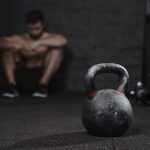So, you’ve decided to try a vegetarian meal plan, but there’s just one problem—you’re always hungry. You start your day with a smoothie, feel great, and then two hours later, you’re raiding the pantry like a confused squirrel preparing for winter. Sound familiar? The struggle is real, but don’t worry—we’ve got your back.
This meal plan isn’t just a bunch of sad salads and tofu that tastes like, well… nothing. It’s packed with protein, fiber, and real, satisfying meals that will actually keep you full.

We understand this a 1 day meal plan and it’s impossible to eat the same thing every day. If you would like longer meal plans that take all the guesswork out of them we have that option as well at the end of this article. 👇
**This plan is based on a target of 3,000 calories per day. Your target calories should be specific for YOU. Suggested caloric intake varies from person to person and factors in your goal such as weight lose, muscle gain etc. These portion sizes can be adjusted based on individual caloric needs, activity levels, and specific dietary preferences.
We highly recommend using a macro calculator first and adjusting your diet portions to reflect your goal. This free macro calculator will show you how many calories per day you burn and shows you how to adjust for your goals.**
This meal plan provides approximately 3,000 calories, with a macronutrient distribution of 40% carbs, 30% protein, and 30% fats. It includes high-quality plant-based protein sources and supplements for optimal muscle growth.

Reasons to Consider Switching to a Vegetarian Meal Plan
Switching to a vegetarian meal plan isn’t just about skipping meat—it’s about fueling your body with nutrient-dense, plant-based foods that can transform your health, energy levels, and even your impact on the planet. Whether you’re looking to build muscle, improve digestion, or just feel better overall, here are some of the biggest benefits of adopting a vegetarian diet.
1. Improved Overall Health
A well-balanced vegetarian diet is packed with fiber, antioxidants, vitamins, and minerals, all of which can support better health. Studies suggest that vegetarians often have a lower risk of heart disease, high blood pressure, and type 2 diabetes compared to meat-eaters. Plus, with a focus on whole foods, you’re naturally avoiding processed meats and excess saturated fats that can contribute to chronic illnesses.
✅ Bonus: More plants = a happier gut. The fiber in fruits, vegetables, and whole grains helps improve digestion and keeps things moving smoothly.
2. Increased Energy Levels
Say goodbye to post-lunch energy crashes! Whole plant foods provide slow-digesting carbohydrates, fiber, and essential nutrients that help maintain steady blood sugar levels throughout the day. This means more consistent energy, fewer slumps, and better performance in both workouts and daily activities.
✅ Bonus: Many plant-based foods are naturally anti-inflammatory, which can speed up recovery and reduce muscle soreness after exercise.
3. Supports Weight Management
If weight loss or maintenance is your goal, a vegetarian meal plan can be a game-changer. Plant-based diets tend to be lower in calories but higher in volume, meaning you can eat larger portions without overdoing it on calories. The high fiber content also helps you feel fuller for longer, reducing the chances of mindless snacking or cravings.
✅ Bonus: You won’t need to obsess over portion control as much—filling up on whole grains, legumes, and veggies naturally helps regulate appetite.
4. Great for Muscle Building and Recovery
Despite what some people think, you can build muscle on a vegetarian diet. With the right combination of plant-based protein sources like lentils, tofu, quinoa, and tempeh, you can support muscle growth just as effectively as someone eating meat. Plus, vegetarian diets often include more anti-inflammatory foods, helping with faster recovery after intense workouts.
✅ Bonus: Plant-based proteins come with added nutrients like fiber, vitamins, and minerals—something most meat sources don’t provide.

Biggest Drawbacks of a Vegetarian Meal Plan (And How to Overcome Them!)
Switching to a vegetarian meal plan comes with plenty of benefits—improved health, environmental impact, and possibly even a smug sense of self-satisfaction at family dinners. But let’s be real: it’s not all rainbows and lentils. Here are some of the biggest drawbacks of a vegetarian diet and how you can work around them.
1. Getting Enough Protein Can Be Tricky
One of the biggest concerns (and the most common question from your meat-eating friends) is: Where do you get your protein? While plant-based sources like beans, lentils, tofu, and quinoa pack a protein punch, they often lack one or more essential amino acids.
Solution: Focus on eating a variety of plant-based protein sources throughout the day. Combine grains with legumes (like rice and beans) to ensure you’re getting all the essential amino acids your body needs. And if you’re really struggling, a high-quality plant-based protein powder can be a great supplement.
2. You Might Need to Plan More (No, You Can’t Just Wing It)
Unlike omnivores, who can just throw some chicken on a plate and call it a meal, vegetarians need to put a little more thought into their diet to ensure they’re getting balanced nutrition. Relying on pasta and bread alone is a recipe for fatigue and nutrient deficiencies.
Solution: Meal prep is your best friend. A little planning goes a long way—make sure your meals are balanced with protein, fiber, and healthy fats. Stock up on quick, nutritious snacks like nuts, hummus with veggies, or Greek yogurt to keep hunger at bay.
3. Potential Nutrient Deficiencies
Without meat and fish in your diet, it’s easy to miss out on key nutrients like B12, iron, omega-3 fatty acids, and zinc—all crucial for energy, brain function, and overall health.
Solution: Fortified foods, leafy greens, nuts, and seeds can help, but supplements might be necessary—especially for B12 (since it’s mostly found in animal products). Taking a high-quality multivitamin or adding nutritional yeast to meals can help cover any gaps.
4. Eating Out Can Be… Frustrating
Let’s face it: not all restaurants cater well to vegetarians. You might find yourself stuck with a sad side salad or grilled cheese while your friends feast on hearty entrees.
Solution: Check menus in advance and call ahead if necessary. Many restaurants are improving their vegetarian options, but it’s always best to be prepared. And when in doubt, carry an emergency snack—because no one likes a hangry vegetarian.

Vegetarian Meal Plan
This vegetarian meal plan ensures optimal protein intake through plant-based sources while incorporating essential supplements like creatine, protein powder, and casein to maximize recovery and muscle growth.
Daily Total Macronutrients and Calories
- Carbs: ~255g (40%)
- Protein: ~207g (30%)
- Fats: ~85g (30%)
- Calories: ~3,000
Breakfast (7:00 AM)
Banana Overnight Oats with Chia Seeds and Peanut Butter
-
Ingredients:
- 1/2 cup rolled oats (40g)
- 1 tablespoon chia seeds (10g)
- 1 cup unsweetened almond milk (240ml)
- 1 tablespoon peanut butter (16g)
- 1/2 scoop plant-based protein powder (15g)
- 1/2 teaspoon cinnamon (1g)
- 1/2 banana, sliced (60g)
-
Macronutrients:
- Carbs: 50g
- Protein: 30g
- Fats: 14g
- Calories: ~450

Mid-Morning Snack (10:00 AM)
Greek Yogurt with Granola and Almond Butter
-
Ingredients:
- 1 cup plant-based Greek yogurt (150g)
- 1/4 cup granola (30g)
- 1 tablespoon almond butter (16g)
-
Supplement: Creatine Monohydrate (5g with water)
-
Macronutrients:
- Carbs: 30g
- Protein: 18g
- Fats: 10g
- Calories: ~300

Lunch (1:00 PM)
Quinoa Bowl with Lentils and Roasted Vegetables
-
Ingredients:
- 1/2 cup cooked quinoa (92g)
- 1/2 cup cooked lentils (100g)
- 1/2 cup roasted sweet potatoes (75g)
- 1 teaspoon olive oil (5g)
- 1 tablespoon tahini (15g)
-
Macronutrients:
- Carbs: 55g
- Protein: 28g
- Fats: 14g
- Calories: ~500

Pre-Workout Meal (4:00 PM)
Rice Cakes with Peanut Butter and Banana
-
Ingredients:
- 2 rice cakes (14g)
- 1 tablespoon peanut butter (16g)
- 1/2 banana (60g)
-
Supplement: Pre-Workout Formula (as per product serving size)
-
Macronutrients:
- Carbs: 35g
- Protein: 5g
- Fats: 7g
- Calories: ~220

Post-Workout Meal (6:00 PM)
Protein Shake with Berries and Almond Milk
-
Ingredients:
- 1 scoop plant-based protein powder (30g)
- 1/2 cup mixed berries (75g)
- 1 cup almond milk (240ml)
-
Supplement: 5g Glutamine (optional)
-
Macronutrients:
- Carbs: 30g
- Protein: 25g
- Fats: 3g
- Calories: ~250

Dinner (8:00 PM)
Chickpea and Spinach Curry with Brown Rice
-
Ingredients:
- 1/2 cup cooked brown rice (92g)
- 1/2 cup cooked chickpeas (100g)
- 1 teaspoon coconut oil (5g)
- 1/2 cup tomato sauce (120g)
- 1/2 cup spinach (30g)
-
Macronutrients:
- Carbs: 55g
- Protein: 26g
- Fats: 10g
- Calories: ~500
Evening Snack (10:00 PM)
Cottage Cheese with Walnuts and Casein Protein
-
Ingredients:
- 1/2 cup cottage cheese (112g)
- 1/2 scoop plant-based casein protein (15g)
- 1 tablespoon walnuts (7g)
-
Macronutrients:
- Carbs: 5g
- Protein: 25g
- Fats: 8g
- Calories: ~200
For more personalized free meal plans check out Eat This Much. What we love about this meal planning platform is you can pick your budget limits and “like” or “dislike” the type of foods you like. Weekly meal plans are automatically emailed you or you can download them in PDF format. Not only that, it gives you the grocery list!
View example meal plan PDF here. Vegetarian Meal Plan PDF
You can sign up here .








